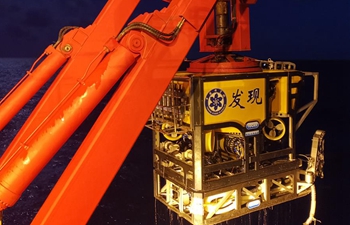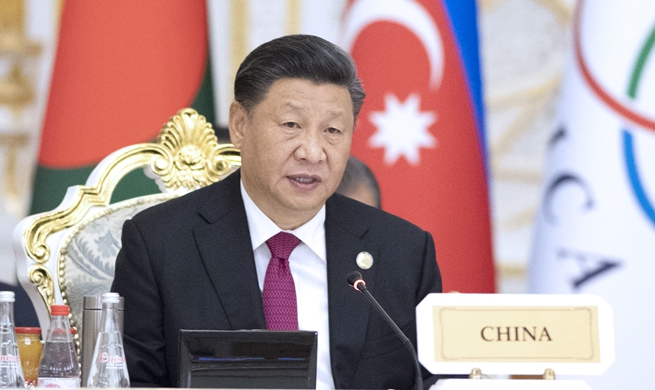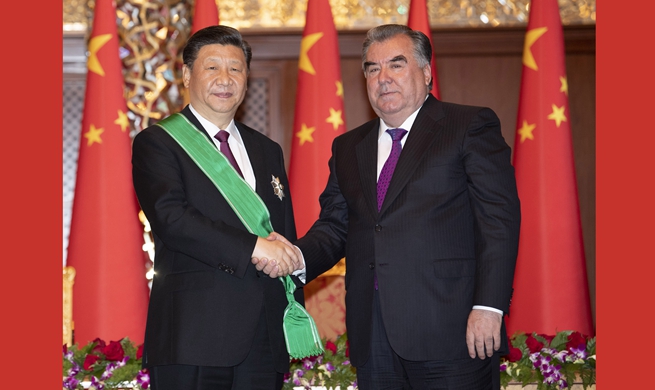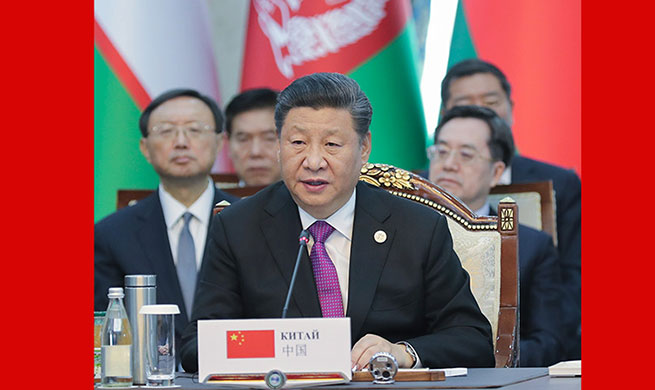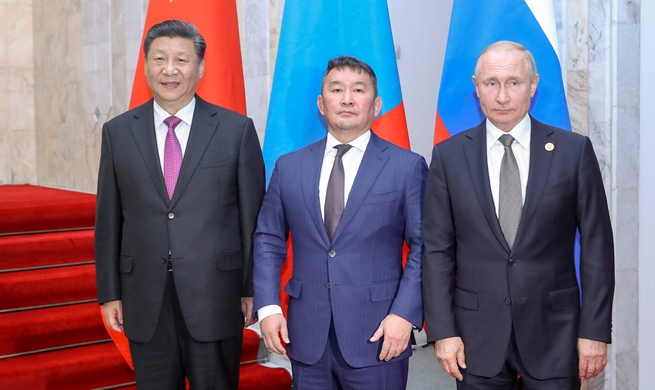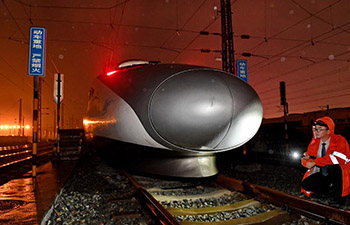ISTANBUL, June 15 (Xinhua) -- In defiance of a threating letter from the United States, Turkey has once again vowed to get the S-400 air defense missiles from Russia, but analysts feel Ankara could toe Washington's line following the mayoral election in Istanbul.
"Turkey is bluffing. Following the local election, Ankara may well produce a solution Washington would accept," Hasan Koni, an international relations analyst, told Xinhua.
In a letter dated June 6, Acting U.S. Defense Secretary Patrick Shanahan warned his Turkish counterpart Hulusi Akar of heavy consequences in case Turkey receives the Russian missiles.
Russia is scheduled to deliver the first two batteries of the sophisticated S-400 system next month.
"Turkey may get the S-400s but just keep them inoperative," observed Koni, who teaches at Istanbul Kultur University.
Faruk Logoglu, a former senior diplomat, echoed this view.
Turkey will have a rerun of the mayoral election in Istanbul, the country's largest city, on June 23.
It is widely argued that the ruling Justice and Development Party, which attaches great importance to winning Istanbul again, would keep its S-400 rhetoric in the run-up to the election for fear of losing votes.
For several days following the arrival of Shanahan's letter, Turkish officials remained silent on the issue.
On Wednesday, Turkish President Recep Tayyip Erdogan forcefully stated Ankara's position, saying S-400 was a done deal and that Ankara would not walk out on it.
Despite the appearances that the issue is reaching a breaking point, there is at the same time a quieter dynamic of dialogue going on between Turkey and the U.S., noted Logoglu.
"That indicates the presence of a mutual will to resolve the issue," he argued, underlining that Ankara and Washington need each other.
On Thursday, Akar had a phone call with Shanahan over the S-400 issue and they agreed to meet on the sidelines of a NATO meeting at the end of this month in Brussels.
President Erdogan is also scheduled to meet with his U.S. counterpart Donald Trump when they are in Japan for a Group of 20 summit on June 28-29.
To Washington's great dissatisfaction, Ankara concluded the S-400 deal with Moscow at the end of 2017 and will get a total of four batteries of the system for 2.5 billion U.S. dollars.
Shanahan's letter, apparently leaked by Washington, came after Turkey sent personnel to Russia for training on the S-400 system at the end of last month.
The U.S. defense chief once again underlined in his letter that Washington would not allow its NATO partner to have U.S.-made F-35 stealth fighter jets if Ankara takes delivery of the S-400s.
The U.S. is concerned that the S-400 missiles stationed on Turkish territory could gain valuable intelligence on the technical systems of the F-35s and threaten NATO's security.
The letter also warned that Turkey would gradually be removed from the F-35 joint production program and face economic and military sanctions, referring to U.S. congressional determination to see sanctions imposed on Turkey in such an eventuality.
Until the S-400s arrive in Turkey, the possibility of Turkey backing out of the deal is still there, said Cahit Armagan Dilek, director of the Ankara-based 21st Century Turkey Institute.
"The S-400 decision would only get finalized following the Istanbul election," he said, arguing the developments in Syria's Idlib and whether Turkey would sign a deal with the International Monetary Fund (IMF) to get loans for its ailing economy would also factor in Ankara's decision.
Turkey, which supports rebels against the Syrian government, has cooperated more with Russia in war-torn Syria since mid-2016. However, the Syrian army's recent operation backed by Russian air force against rebel-held Idlib may strain ties between Ankara and Moscow.
The U.S. may have plans to add fuel to the fire in Idlib, hoping for increasing friction between Ankara and Moscow to set the stage for Ankara's walking out of the S-400 deal, said Dilek, a former staff officer in the Turkish military.
Given the fact that Ankara and Washington seem to have a consensus on some major regional issues, it is highly unlikely for the S-400 issue to turn into a major crisis between them, Dilek argued.
The Pentagon revealed last week that the Turkish pilots currently in the U.S. were no longer being trained on the F-35, a brand-new fifth-generation fighter jet.
Shanahan noted, however, that Turkish participation in the F-35 program would not be suspended immediately but rather by July 31. He also underlined that Ankara still has "the option to change course on the S-400."
"Washington will not want to push Ankara further into Moscow's arms, needs Turkey's cooperation in the Middle East and covets Turkish support as it seeks greater access to the Black Sea," remarked Logoglu.
"Turkey, on the other hand, needs American goodwill when it knocks on the IMF's door to mend its fragile economy," he said.
The debt-stricken Turkish economy is suffering from high inflation, unemployment and recession. It is widely argued that the Turkish government may have to go to the IMF, over which the U.S. has much sway, following the Istanbul election.
Ankara is working on an adequate response to Shanahan's letter, Turkish presidential spokesman Ibrahim Kalin said Thursday, criticizing the letter's content and wording as not suitable to the spirit of alliance.
Turkey's delay in responding to the letter, which is like an ultimatum, also suggests that Ankara may give up on the S-400s, remarked Dilek.
Minister Akar suggested last month that Ankara may block Washington from using the Incirlik air base as well as the Kurecik radar facility in eastern Turkey in case the Trump administration imposes sanctions.
On the odd chance that the S-400 issue turns into a real crisis, then Ankara should prevent the U.S. from using the Incirlik base and shut down the radar in Kurecik simultaneously with its removal from the F-35 project, said Dilek.
Turkey cannot and should not leave American sanctions unanswered, Logoglu stated, adding the measures "must be limited to targeting specifically American interests, but leave NATO assets untouched."

